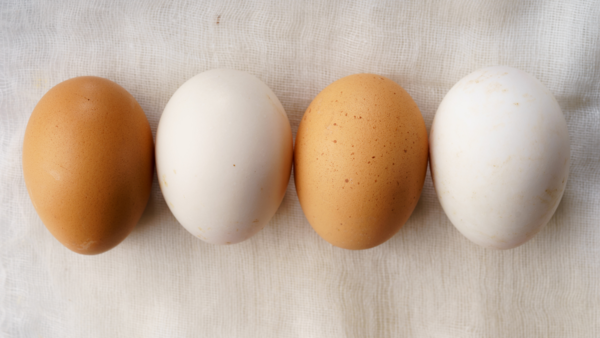What causes the change in color
The color difference between brown and white eggs is purely superficial and is determined by the breed of the hen.Brown eggs are typically laid by breeds such as Rhode Island Reds or Plymouth Rocks, whereas white eggs are usually produced by breeds like Leghorns. The shell color variation is unrelated to the nutritional content or quality of theegg.
Nutritional values
Nutritionally, both brown and white eggs contain comparable amounts of protein, vitamins, and minerals. They provide essential nutrients like vitamin B12, vitamin D, riboflavin, selenium, and choline, all crucial for maintaining good health. The distinction in taste or nutritional value between the two types of eggs is minimal and doesn’t significantly impact their overall health benefits.
Cost and nutritional benefits
One common misconception is that brown eggs are healthier because they are more expensive. This notion is misleading. The higher price is often due to the fact that the breeds laying brown eggs tend to be larger and consume more feed, leading to increased production costs. The cost difference isn’t an indicator of their nutritional superiority.

Importance of hen’s diet and living conditions
Another factor influencing the nutritional profile of eggs is the hen’s diet and living conditions. Eggs from hens raised in free-range environments or fed a diet rich in omega-3 fatty acids may contain higher levels of these beneficial nutrients. Studies have found that eggs from hens that are allowed to roam in the sunshine contain 3–4 times the amount of vitamin D you’d find in eggs from conventionally raised hens. However, this aspect applies to both brown and white eggs, and it’s more about the hen’s lifestyle and diet than the shell color.
Easy home workouts for quick weight loss
What’s the verdict?
Ultimately, the choice between brown and white eggs comes down to personal preference, availability, and sometimes, cultural influences. Both types offer similar nutritional benefits and can be part of a healthy diet. Whether brown or white, selecting eggs labeled as “organic,” “free-range,” or “pasture-raised” ensures better living conditions for the hens and potentially higher omega-3 content due to their diet.

